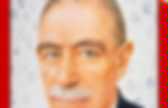

'La Grande Transformation' de Karl Polanyi. Voici un article et une émission sur France Culture consacrés à Karl Polanyi, (1886-1964) et à son oeuvre majeure La grande transformation. Economiste et aussi, pourrait-on dire, anthropologue, Polanyi, dans son ouvrage, développe la thèse selon laquelle le XIXè siècle vit la naissance "du marché auto-régulateur" et fut à l'origine d'une véritable révolution au sein du monde 'moderne', entraînant ce qu'il appelle lui-même "La grande Transformation" avec l'avènement du fascisme puis du 'socialisme de type soviétique'. Voici ce que dit Louis Dumont en préface du livre : "La Grande Transformation, c'est ce qui est arrivé au monde moderne à travers la grande crise économique et politique des années 1930-45, c'est à dire, Polanyi s'emploie à le montrer, la mort du libéralisme économique.
Or ce libéralisme, dont Hitler a été le fossoyeur adroit, était une innovation sans précédent apparue un siècle plus tôt. 1 - Enoncé de la thèse "Polanyiennne" 2 - La "Paix de Cent Ans" The Origin Of 'The World's Dumbest Idea': Milton Friedman. Paul Krugman: It’s time for “trickle-up” economics! In his most recent piece for the New York Times, liberal columnist and celebrated economist Paul Krugman argues that the trade-off traditionally understood to exist in a modern economy between fighting inequality and promoting growth is, at least in the American context, no longer relevant. That’s right, U.S. liberals — you can have your cake, eat it and redistribute the leftovers, too! “It’s true that market economies need a certain amount of inequality to function,” Krugman grants. “But American inequality has become so extreme that it’s inflicting a lot of economic damage. And this, in turn, implies that redistribution — that is, taxing the rich and helping the poor — may well raise, not lower, the economy’s growth rate.”
To buttress his point, Krugman cites a new report from the ratings agency Standard & Poor’s (hardly a hotbed of socialist radicalism) that finds the U.S. economy’s level of inequality is a drag on economic growth. Reinhart and Rogoff's latest paper warns on financial repression | Business. For Carmen Reinhart and Ken Rogoff, 2013 has been a year to forget. The big news in the world of academic economics was that a celebrated and hugely influential paper by the Harvard duo on the link between government debt and growth was wrong. The paper, cited regularly by supporters of austerity programmes, said countries where the national debt was higher than 90% of national output (GDP) could expect to see a marked drop off in growth. On examination, the data used by Reinhart and Rogoff showed there was no such link, with the pair's (many) critics saying that the line of causality lies in the opposite direction: low growth leads to high levels of debt rather than high debt leading to low growth.
R and R continue to churn out papers in their chosen field, the latest of which has just been published by the London-based Centre for Economic Policy Research. Why? Historically, this is poppycock according to Reinhart and Rogoff. Paul Krugman. Paul Krugman joined The New York Times in 1999 as a columnist on the Op-Ed Page and continues as professor of Economics and International Affairs at Princeton University. Mr. Krugman received his B.A. from Yale University in 1974 and his Ph.D. from MIT in 1977. He has taught at Yale, MIT and Stanford. At MIT he became the Ford International Professor of Economics. Mr. Krugman is the author or editor of 20 books and more than 200 papers in professional journals and edited volumes. At the same time, Mr.